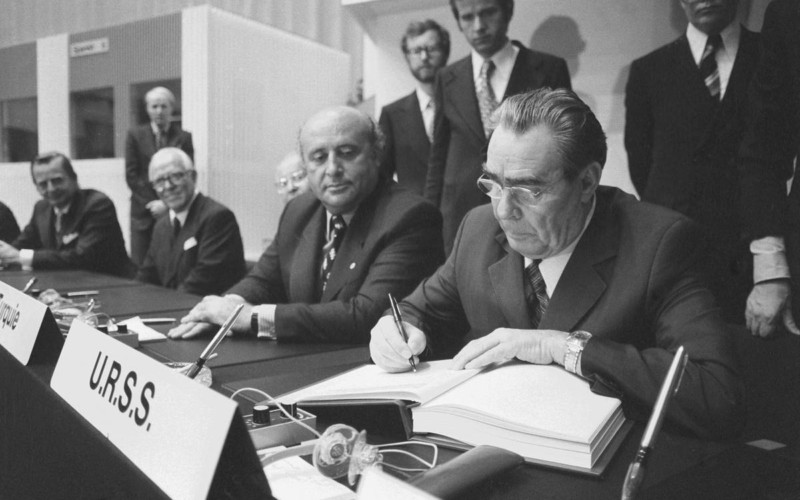Chairman of the Committee on International Affairs Leonid Slutsky:
“45 years have passed since the adoption of the Final Act of the Conference on Security and Cooperation in Europe, which became the basis for the work of the OSCE. In 1975, this event became the most important stage in the formation of a security system in the Euro-Atlantic with two warring systems during the Cold War era. However, today – as the world is rapidly changing – many people say that the organization is idle and has ceased to respond to the tasks originally assigned to it. Nevertheless, I am convinced that it is too early to bury the OSCE. The Spirit of Helsinki can still breathe new life into it.
The Helsinki Act was signed by the leaders of 33 European countries, the USA and Canada. It lays down universal principles: inviolability of borders and territorial integrity, non-interference in internal affairs, notification of military exercises and the presence of foreign observers, equality and the obligation to respect human rights, the right of peoples to control their own destiny and resolve issues with borders in accordance with the UN Charter and international law. In fact, a set of rules of conduct was created on the European continent. Moreover, “European” in the broad sense of the word – from the United States to Vladivostok.
But five years after Helsinki, the detente ended, and a new stage of the Cold War began. This was followed by the collapse of the USSR, the war in Yugoslavia and the bombing of Belgrade by NATO countries, the advance of the North Atlantic Alliance to the east, bypassing all these promises and the deployment of American missile defense systems in Europe. The OSCE then did not oppose all this. Today, with the filing of the United States, the system of agreements in the sphere of strategic stability and arms control is collapsing before our very eyes, and Washington is trampling on the norms of international law with might and main. And the OSCE was and remains, as it were, on the sidelines. After the collapse of the Soviet Union, the organization was increasingly used by Western countries to put pressure on Russia. Whatever Moscow did, provoked their criticism, and the statutory rule on the right of peoples to decide their fate in the case of Crimea was not only ignored, but even turned and used against Russia. “Was the OSCE created for the exchange of accusations, and not for the professional search for points of contact, rapprochement of positions and the formation of responses to common challenges?” – Alexander Lukashevich, Russia’s Permanent Representative to the OSCE, justly asks. He is right – the potential of the OSCE is not being fully utilized.
Critics never tire of reminding them that the Final Act was signed in a different geopolitical and historical situation. Russia, however, opposing the revision of the basic principles of the act, speaks of the need to update them. There is still a need for a real instrument for reconciling interests and reducing tensions, because today there are no less threats to security than 45 years ago, if not more. In addition, today European security is directly related to security south of Europe – in northern Africa, the Middle East, and security in South Asia. Therefore, we need to look for new approaches, and not create new dividing lines. This requires the political will of Western countries. First of all, the United States, which, despite the objections of the majority of European states, continues to impose their will on them, undermine the architecture of European stability, including withdrawing from the cornerstone agreements concluded with the USSR.”


